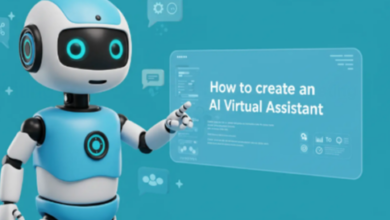Human-Centric AI: Putting People in the Loop

Human-Centric AI represents a pivotal shift in technology development, emphasizing the integration of human needs and values. This approach encourages developers to prioritize empathy and ethical considerations, fostering a deeper understanding of user experiences. As AI systems increasingly influence daily life, the importance of maintaining a collaborative relationship between humans and machines becomes evident. What implications does this have for the future of technology and society? The exploration of these questions reveals a complex landscape ahead.
Understanding Human-Centric AI
Human-Centric AI represents a shift towards technology that prioritizes human needs and values in its design and implementation.
By emphasizing user experience and actively incorporating user feedback, this approach fosters a more inclusive and adaptive technological landscape.
It encourages developers to listen to users, ensuring that AI systems align with diverse human perspectives, ultimately enhancing engagement and promoting a sense of autonomy in an increasingly automated world.
The Role of Empathy and Ethics in AI Development
Incorporating empathy and ethics into AI development is a vital aspect of fostering technologies that resonate with human values.
Empathy integration ensures that AI systems are designed with a deep understanding of user experiences, while ethical frameworks guide decision-making processes.
Together, these elements promote accountability and respect for individual autonomy, ultimately creating AI applications that enhance human freedom and well-being.
Read Also: Human Augmentation Technologies: Wearables That Enhance
Real-World Applications and Benefits of Human-Centric AI
Numerous real-world applications of human-centric AI demonstrate its potential to transform industries and enhance everyday life.
By fostering personalized experiences, these systems empower individuals, allowing them to navigate choices more freely.
Collaborative systems, integrating human insight with machine intelligence, enhance decision-making in healthcare, education, and beyond.
This synergy not only improves outcomes but also respects human autonomy, fostering a more liberated society.
Conclusion
In a world where machines might soon take over everything from cooking to emotional support, it’s reassuring to know that Human-Centric AI is here to remind us that, yes, humans still matter—at least until robots develop their own feelings. By emphasizing empathy and ethics, this approach ensures that technology doesn’t just serve its creators, but also the hapless humans who must endure its quirks. After all, who wouldn’t want a machine that understands them better than their own family?




